Despite the city’s usual clamor, the sharp crack of gunfire pierced through the noise, impossible to ignore. Following Abuja’s collapse, chaos rippled across the northern regions and the southern highlands. Sokoto succumbed next, then Anambra, triggering a mass exodus into neighboring states and across geopolitical boundaries. By mid-September, a dozen states had fallen, prompting Lagos to seal its borders. Early this morning, the Aso Rock Villa was engulfed in flames, while I remained trapped in a standstill traffic jam.
The man beside me flinched as a police baton struck the window he had been resting against. The officer outside seemed oblivious, continuing to shout at hawkers darting about with snacks and cold drinks. Nearby, another vendor hawked cardboard, markers, and Nigerian flags defaced with red crosses.
“Why you wan break my window?” the driver shouted, leaning out of his car.
“You dey craze? You suppose no dey road today?” the policeman retorted, his protruding belly straining against his uniform buttons.
The Uber driver watched the policeman’s tirade with visible disdain.
“Today na Independence Day. You no hear wetin your president talk?” the officer continued, waving his baton dangerously close to the driver’s face. “He declare state of emergency!”
“President wey don japa,” the tricycle driver ahead chimed in with a smirk, poking fun at the absent leader.
Within moments, the surrounding drivers erupted into heated debates about the nation’s turmoil. The policeman and driver remained locked in confrontation, while the traffic remained immobile.
Suddenly, the man next to me glanced at his phone, alarmed. “There’s a massive protest coming this way-they’ve set an oil tanker ablaze on the Third Mainland Bridge!”
Neither the driver nor the policeman seemed to register the warning, nor the distant roar of voices growing louder.
“We need to leave now.”
I looked at him, puzzled. We? Who was this stranger to dictate my actions?
“I’ve already paid for both our rides,” he said, locking eyes with me briefly. Without waiting for a response, he opened the door on my side. “We don’t want to be caught here when they arrive.”
I slipped out of the car, weaving through the congested maze of vehicles, motorcycles, and street vendors. Glancing back, I saw him close behind. Neither the driver nor the policeman noticed our departure. Once we reached the roadside, jostling past more hawkers and riders, the first gunshots rang out. Protesters armed with guns?
“They’re here!” someone shouted behind us.
Drivers abandoned their cars, hawkers dropped their wares, and chaos erupted. The man and I darted between vehicles, the sounds of screams and bodies hitting the ground echoing behind us. We kept moving, heads down, refusing to look back.
We found refuge in an unfinished construction site, a skeletal structure likely destined to become a corporate office. Climbing the stairs, we reached the fourth floor, an open expanse that seemed meant for glass walls but remained bare.
Perched on the edge, our legs dangling, we caught our breath as the sun dipped toward the distant ocean, the city’s panic unfolding beneath us.
“It’s strange, isn’t it?” he said, loosening his tie. “Lagos is under siege, yet it feels like any other day.”
I laughed, a sound that felt foreign after so much tension. He didn’t join in but smiled softly when I glanced at him.
“Just another ordinary day,” he agreed.
His sharp suit contrasted with my worn traditional attire. Despite the chaos, he smelled of cedarwood and exotic Arabian scents-reminders of the parents at the school where I taught. He was handsome, but I pushed the thought aside.
He nodded toward the envelope in my hand, which I had nearly forgotten amid the turmoil. It had felt heavy when I received it at the hospital, but adrenaline had lightened its weight.
“You could say it’s important,” I replied.
We sat in silence, punctuated only by distant gunfire and screams. A plume of dark smoke rose in the distance-likely the burning tanker.
“Do you think there’s still hope for Nigeria?” I asked quietly.
He corrected himself quickly, a faint blush coloring his cheeks. I smiled, but the weight of the envelope stole my joy.
“Hope hasn’t carried us far, has it?”
He removed his jacket, revealing a sweat-soaked shirt. I found myself scanning his fingers for a wedding ring, a curiosity I wouldn’t admit.
A cool breeze swept over us, and he sighed contentedly. Sirens wailed faintly in the distance.
“May I kiss you?”
I didn’t meet his gaze, stunned by his boldness. I feared the rejection, the shattering of the fragile hope he clung to amid the chaos.
“If this is the end, I want to remember kissing a beautiful woman,” he added.
Finally, I looked at him. All the harsh warnings about Lagos men, the stories of danger, the surrounding turmoil-all faded away. I nodded.
His smile was radiant, like the joy students show when break time arrives. A helicopter roared overhead, heading toward the smoke, but he gently turned my face away and pressed his lips to mine.
In that instant, I fell as swiftly as Anambra had when insurgents stormed the government house. Bathed in the golden sunset, I kissed him back, knowing that after today, nothing would be the same. Even if the world survived, mine would not.
There’s no perfect way to kiss someone, I realized-just as I had learned after my first kiss with a boy named Big K in secondary school. You surrender to the rush of emotions, rely on the movies you’ve seen, and hope the other person enjoys it.
This kiss reminded me how long it had been since I’d been kissed. I also realized I was awkward at it, but he didn’t seem to mind. His expression was one of pure delight, as if he’d just landed a dream deal. Whether genuine or not, I savored it.
“I’m David,” he said, grinning.
“Chidera,” I replied, coughing slightly as I tapped my chest.
Night was fast approaching. Below, the chaos continued-people running, screaming-but the gunfire had ceased. The smoke still billowed.
“I-“
David’s words were cut off by the sound of chanting voices growing nearer. A group of young men, faces covered with bandanas, stormed toward us. They must have been scouting the building.
“Good evening, sister,” they greeted. Though their covered faces were intimidating, the bottles and sticks they carried suggested they were not the armed terrorists we feared.
“Bro, let’s go protest. You’re a man, come join us,” one laughed, grabbing David’s shoulder.
David’s expression hardened. He shrugged off the hand. “I’m not protesting. I’m heading to Oshodi to see my mother.”
The men exchanged glances and smirked. They smelled of cheap alcohol and fuel.
“You’ll protest with us until we get there,” one declared.
David hesitated, then looked at me, silently asking for support. I shook my head. He pursed his lips-this was the end. No future, no hope. This was where we parted ways.
“Just in case we see another sunset,” he said, handing me a shining business card.
I took it as the men cheered, helping David down the stairs, calling him “Big Oga.”
I avoided looking back, even when he glanced at me one last time before disappearing. My eyes returned to the smoke, still thick and unyielding.
When the voices faded, I dropped the card to the ground, letting it be trampled by the feet of Lagosians. I pulled out the last cigarette from my pocket, lit it, and inhaled deeply, letting the smoke fill me as the fire filled the sky.
I reopened the envelope and read its contents once more. Then, I set it aflame, watching the heat sting my fingers before I tossed it aside.
Cancer. On a teacher’s salary. Hope felt like a cruel joke.
I took another drag, thinking of the kiss, of David’s dimpled smile. I smiled softly, exhaling a cloud of smoke.
My thoughts drifted to the children I taught, praying for their safety. I wondered if my neighbor had remembered to feed my cat back in my cramped Oshodi apartment.
Lagos was destined to fall today. And after Lagos, the rest of Nigeria would follow. No matter how fiercely the city roared beneath me, my world had already ended the moment the doctor told me my cough was more than just a cough.
It was a tightening noose with every breath I took. I wondered which would claim me first-the noose or the flames consuming the city.
***
Featured image by Mikhail Nilov for Pexels


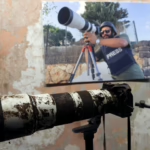
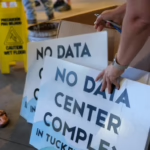
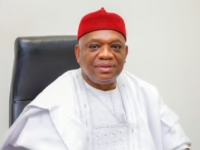
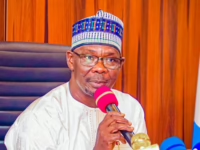
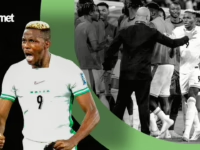
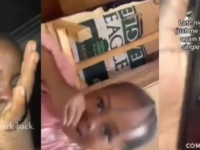
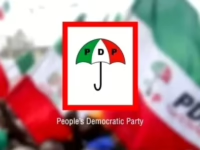

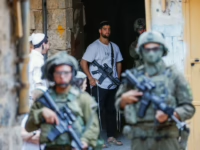
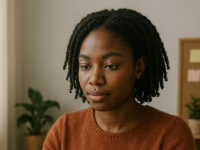
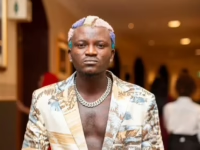
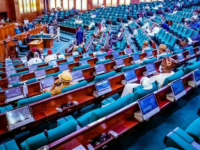


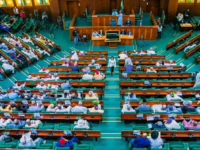
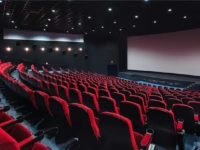


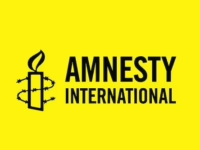
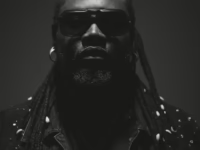
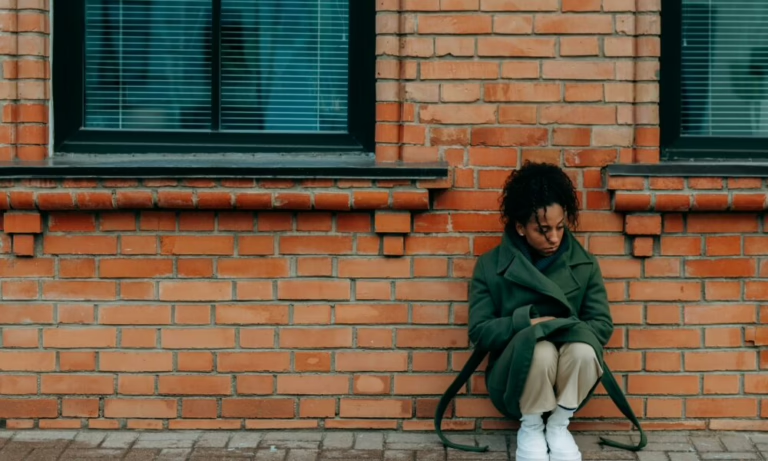
0 Comments